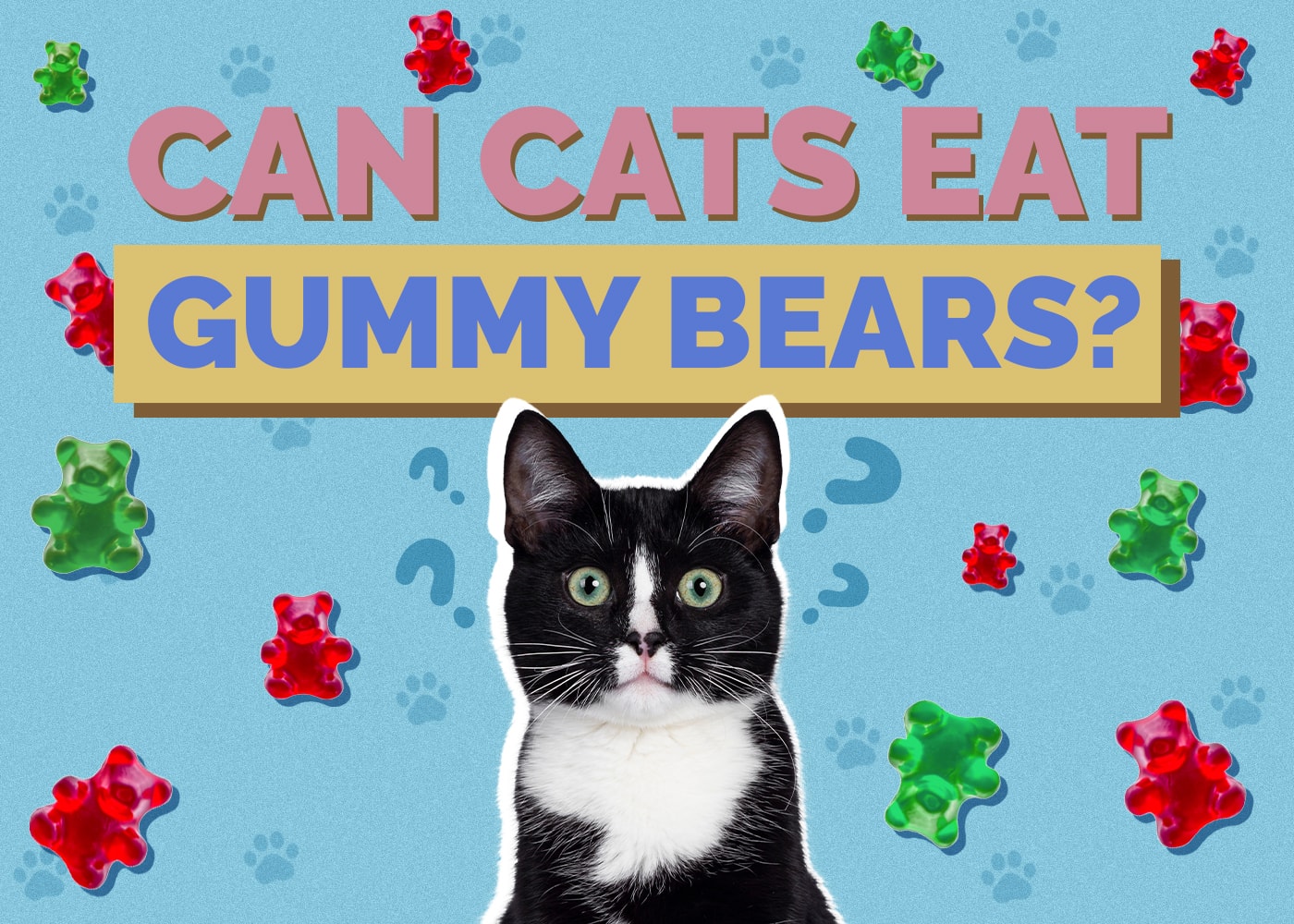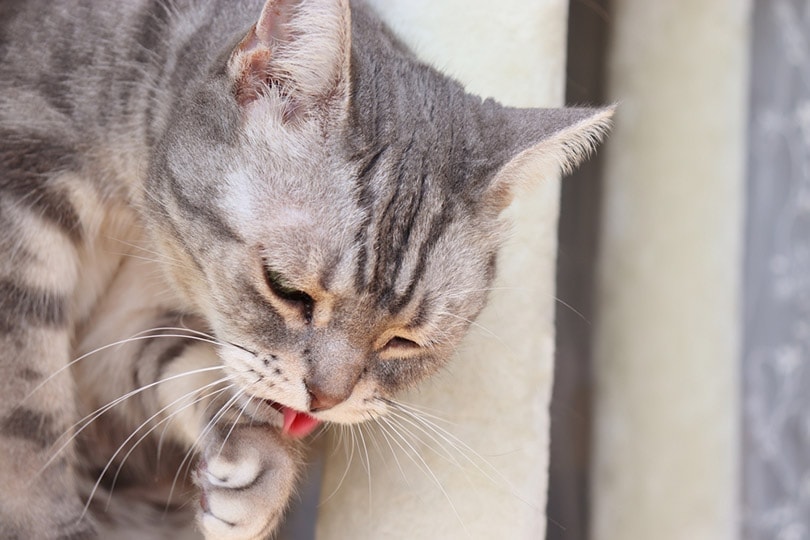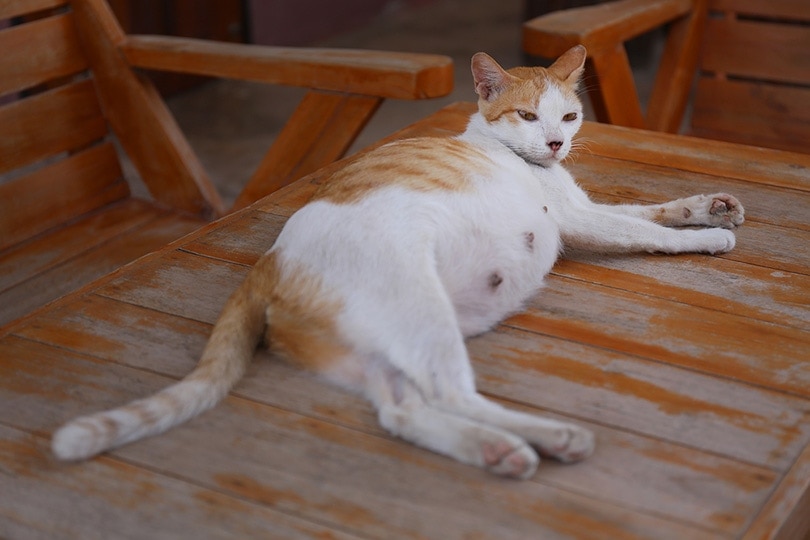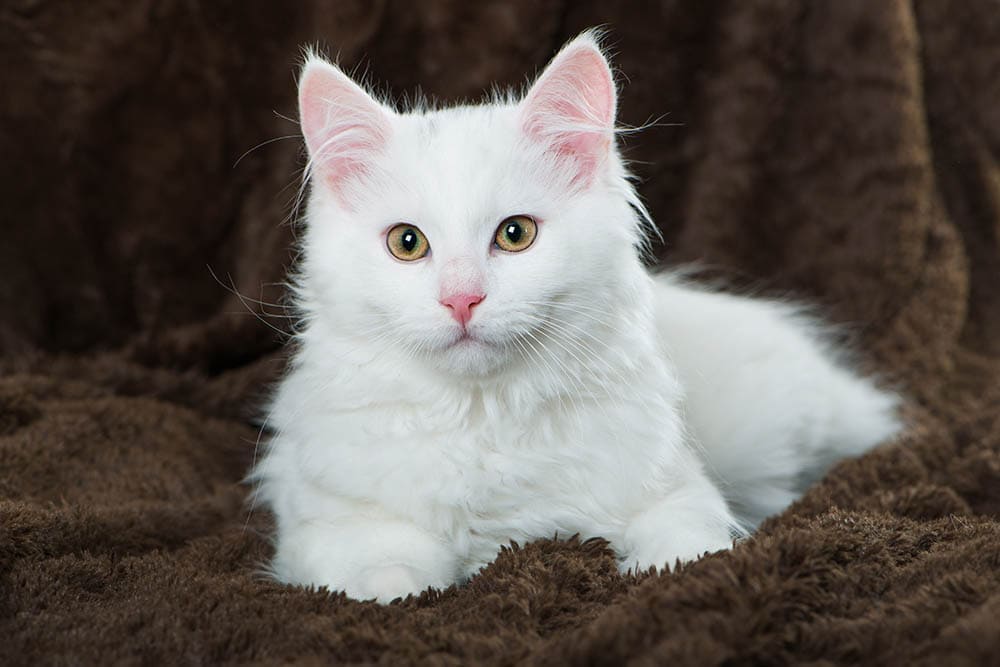Can Cats Eat Gummy Bears? Vet-Approved Facts & Health Risks

Updated on

Some cats prefer staying away from their owners when they are eating. Normally, these are the cats that like having their own space and privacy. There’s nothing wrong with that. Some cats, however, aren’t ashamed to show their interest when their pet parent has a treat. For kitty moms and dads with food-curious fur babies, it’s important to know what foods are safe for your cat. While you’re looking at your bag of sweetness you may wonder, can cats eat gummy bears? The answer is no, you shouldn’t feed gummy bears to your cat. But why?
Let’s discuss the reasons you should avoid feeding gummy bears, no matter how yummy you think they are, to your cat. We’ll take a look at why cats should avoid sugary treats and other issues they may have with eating gummies so you can stay on the right track with your cat’s nutritional needs.
Why Are Gummy Bears Harmful to Cats?
Luckily, gummy bears aren’t toxic or fatal to felines. This can ease your mind if you’ve already allowed your cat to take a nibble off one of your snacks. Can they be harmful to your cat? Yes. A treat doesn’t need to be toxic to be a bad choice. Let’s take a look at a few reasons you shouldn’t give your cat gummy bears.

High Sugar Content
When it comes to gummy bears, there isn’t any nutritional value in these sweet snacks for your cat. In fact, they are mostly sugar. Certain brands even coat the outside of the gummy bears in added sugar. Kitties often struggle with digesting sugar since it isn’t part of their natural diets. Cats are obligate carnivores. This means they get most of their nutrition from meat or animal protein sources and don’t really have a need for dietary carbohydrates.
Cats can easily become overweight. Having regular treats high in sugar can also cause your cat to vomit or have diarrhea. It can also put added pounds on them which can lead to obesity and predispose some cats to feline diabetes.1 To keep your kitty happier and healthier, it’s best to keep your sugary snacks to yourself.
Another potential issue is artificial sweeteners, commonly present in gummy bears. One of them is xylitol, which is a known toxin for dogs, leading to low blood sugar levels and even liver failure in some cases. It does not seem to have the same harmful effect in cats and is not considered as toxic based on available scientific evidence, but it is still an ingredient best avoided in cats, as there isn’t sufficient information on its safety in this species.
Choking Hazard
As a pet parent, you see the foods you feed your cat each day. Whether you choose wet food, kibble, or even a raw diet, cat food isn’t chewy and sticky like a gummy bear. In most instances, if given a gummy bear, your cat would realize it isn’t easy to chew. When this happens, and your cat swallows too big of a piece, they can easily choke. To avoid choking hazards for your cat, it’s best to only give them small pieces of food with textures they can chew completely. And gummy bears should be avoided altogether.

Stomach Upset
Eating inappropriate foods, such as human food and ingredients that are too fatty, caloric, and rich in sugar often leads to an upset stomach in cats. This manifests as vomiting, drooling, reduced appetite, diarrhea, abdominal pain, and lethargy. Some cases resolve within the day without needing veterinary attention, but if your cat is not feeling well, they will need to be checked out by your vet.
Mouth and Tooth Issues
Gummy bears can cause your cat a lot of tooth issues. The texture, as we mentioned above, is quite sticky. This causes pieces to get stuck in between your cat’s teeth or on their gums. Unfortunately, cats can’t move their tongue around as humans can. When these pieces get stuck it can cause your cat quite a bit of discomfort. They may drool and paw at their mouths.
You may also think that sugar in gummy bears is also bad for your cat’s teeth. It certainly isn’t beneficial for your kitty in any way, but there is no evidence to suggest it causes plaque buildup or dental disease, like it does in people. Still, gummy bears should not be offered to cats, due to all of the reasons stated above.
Now that you know what you can safely feed your cat, it’s just as important to find a bowl that supports their health and well-being. With whisker-friendly bowls and a wide tray to catch any spills, our Hepper NomNom Cat Bowl is our favorite option.
In Conclusion
As you can see, while gummy bears are fun for us to eat, giving them to our cats can be dangerous. If you want to avoid causing your kitty an upset stomach, mouth or throat issues, and far worse, keep the sweet treats to yourself. If need be, hide in the pantry to eat those gummy bears. This will make you feel like a responsible pet parent who sleeps well at night knowing they are doing the right thing for their kitty.
Related Reads:
Featured Image Credit: Peakpx












